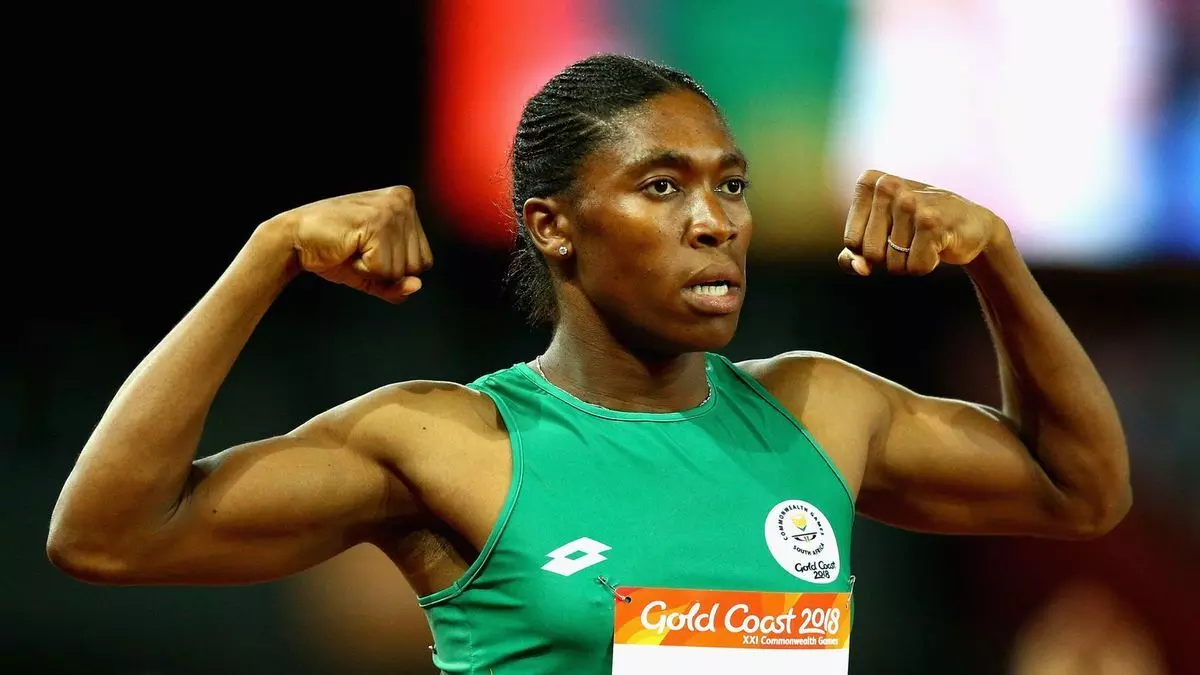Athletics
Athletics: Can 2-time Olympic gold medallist Caster Semenya make the Tokyo cut?
Having switched distances from 800m to 5000m owing to a ban, South Africa's Caster Semenya is running a race against time to make it to the Tokyo Olympics.

With the Tokyo Olympics qualification window just about to firmly shut on June 29, 2-time Olympic champion Caster Semenya is running a race against time to make the Tokyo cut. Still a far-shot from meeting the qualification mark, Semenya has one last chance remaining as she will take part in a meeting at Liege, Belgium this week as part of the World Athletics' Continental Tour.
Having been banned by the IAAF in 2018 from participating in any race within 400m to a mile, South Africa's star track and field athlete has only the 5000m as her lone option. After being detected possessing high testosterone levels in her bloodstream, Semenya was ruled out of contention from her usual category of races, by the governing body of World Athletics.
Caster Semenya had trailblazed into the limelight when she picked up the gold medals in both the 2012 London Olympics and the 2016 Rio Olympics, in the 800m event. A 3-time World Champion as well, Semenya has excelled in the 800m like no other, etching her dominance in Berlin, Daegu and London. However, because of the IOC ban, the track and field legend, Semenya can no longer take part in the category she has tasted Olympic success in.
Shifting gears considerably from middle distance to long distance, Caster Semenya only participates in the 5000m races now and has even won the South African title for 5000m in Pretoria, earlier in April. But the 30-year-old star athlete hasn't been able to make the qualifying mark of 15:10.00 yet and is down to the one last race remaining to get a spot in Tokyo.
Caster Semenya's refusal to bend to the IAAF's rules
In 2018, the IAAF had introduced a new regulation for female athletes who exhibited "difference of sexual development" (DSD). Under this new rule, athletes possessing testosterone of five nanomoles per litre of blood and above and who are found to be androgen-sensitive are expected to meet certain standards if they wished to compete internationally. Failing to do so would mean they cannot participate with other females in the same event and would have to switch to men's, if need be, owing to DSD findings in their body.
Caster Semenya, who has tested for incredibly high levels of testosterone, felt that she was being targeted specifically with this new ruling which resulted in her being unable to continue her golden runs on the 800m track. Disappointed about the discrimination towards her natural body and showing no inclination to take medication and lower the testosterone level, Semenya had appealed to the Court of Arbitration for Sport (CAS), as well.
However, the CAS did not pay any heed to this plea and the IAAF's decision was upheld. Due to this rule and Semenya's obstinacy to not tamper with her body and its natural processes, she has had to move on to the 5000m. But Semenya is also not one to give up as she continues to challenge the rule of the IAAF and has moved the European Court of Human Rights. With the Tokyo Olympics barely a month away and legal procedures are known to take eternal time, it seems unlikely that any favourable ruling can take place within that span.
Closer home, in India, as well, star sprinter Dutee Chand was also imposed with a similar ban after she also showed high levels of testosterone in her bloodstream back in 2014. Deeming this as an unfair advantage, Dutee Chand was prohibited from competing against other female athletes, causing much controversy.
What will it take for Caster Semenya to qualify?
Backed by her victory in Pretoria, Caster Semenya ran the 5000m in Durban, which was exclusively arranged for her, in hopes of meeting the Olympic qualification mark but could only time 15:32.15 on the clock. Following the Durban appearance, Semenya headed to Regensburg, Germany in June to try out her luck once more - but even then, competing against other top runners, Semenya could only come fourth, timing 15:57.12.
With two such chances already blown, things have come down to the wire for the veteran Olympian who has only one more race to look forward to now. Although the Olympic window shuts on June 29, the Liege race will take place on June 30 and the South African Athletics organisation has decided to allow her a one-day grace period to qualify.
It will be a do-or-die situation for the 2-time Olympian as hopes for receiving an invitation to the Tokyo Games also seem bleak for Semenya. Out of the 44 spots available, 42 of them have already been filled by qualification and therefore, chances are very slim for Caster Semenya to get an invite. Failing to make the mark tomorrow would not spell well for the talented sprinter and she will join the likes of Mo Farah and Carolina Marin, who are also having to sit out the Tokyo Olympics despite being defending champions.
